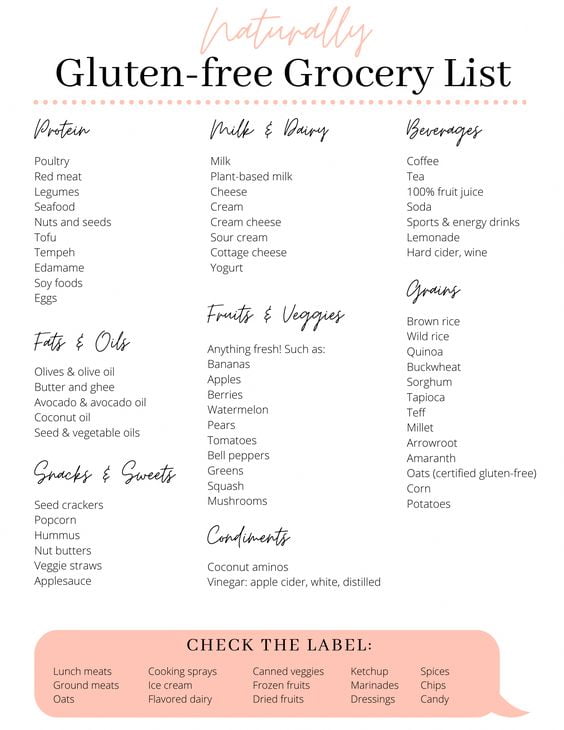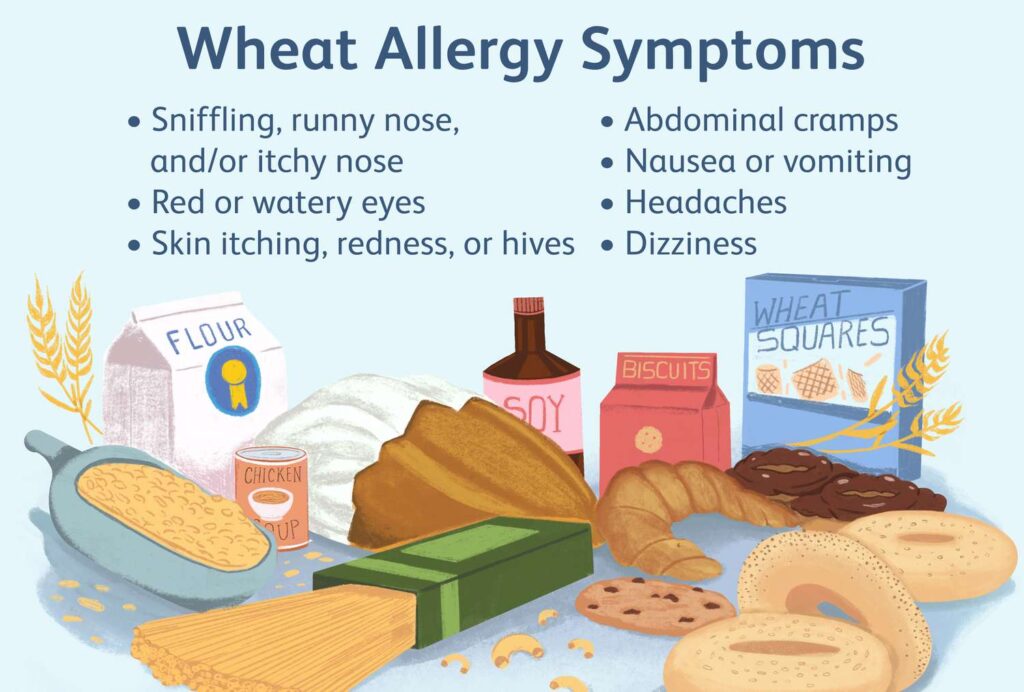Introduction
Understanding Gluten and the Debate Over Gluten-Free Diets
Gluten is a protein found in wheat, barley, rye, and their related products. It’s what makes bread fluffy and chewy, and it’s in many foods like pasta, cereal, and baked goods.
Let’s talk about the big debate: Should you go gluten-free or not? Some people say cutting out gluten is healthy, while others think it might not be so great.
The Good Side of Going Gluten-Free
- Better Digestion: For some folks, especially those with conditions like celiac disease or gluten sensitivity, avoiding gluten can ease tummy troubles like bloating and cramps.
- More Energy: Some people feel more energetic when they skip gluten, especially if they have gluten intolerance.
- Managing Celiac Disease: If you have celiac disease, a gluten-free diet is a must. Gluten can damage your gut, and going gluten-free helps you stay healthy.
The Not-So-Good Side of Gluten-Free Diets
- Missing Nutrients: Gluten-free foods might lack essential stuff like fiber, vitamins, and minerals found in wheat and other grains. It’s important to make sure you’re getting all the good stuff in your diet.
- Cost and Convenience: Gluten-free products can be pricey, and some of them are heavily processed. Plus, it can be hard to find gluten-free options when eating out or traveling.
Finding Your Balance
For folks with celiac disease or gluten sensitivity, a gluten-free diet is crucial. But if you don’t have these issues, there’s no strong evidence that going gluten-free is better for you.
It’s smart to talk to a doctor or nutritionist before making big changes to your diet. They can help you figure out what’s best for your body.
In this article, we’ll dig into the facts behind gluten-free diets so you can make informed choices about your health and wellness.
Section 1: What is Gluten and Who Needs to Avoid It?
Gluten and Its Presence
Gluten is like a group of proteins that you can find in wheat, barley, rye, and foods made from them. It’s what gives dough its stretchiness and helps bread and other baked goods rise and keep their shape.
Explanation of Celiac Disease as an Autoimmune Disorder Triggered by Gluten
Celiac disease is a kind of health problem where the immune system gets confused and attacks the lining of the small intestine when you eat gluten. This can cause all sorts of troubles in your gut and even affect other parts of your body.
Non-Celiac Gluten Sensitivity and Wheat Allergy as Other Reasons for Avoiding Gluten
Some people might not have celiac disease but still feel bad when they eat gluten. This is called non-celiac gluten sensitivity. Then there are those who have a specific allergy to wheat proteins.
Celiac Disease and the Necessity of a Gluten-Free Diet
Celiac Disease, its Symptoms, and Diagnosis
If someone has celiac disease, they can have all kinds of problems like tummy pain, bloating, diarrhea, tiredness, joint pain, and skin rashes. Doctors usually check for specific things in the blood and may also do a small test in the intestine to confirm if someone has celiac disease.
Importance of Strict Adherence to a Gluten-Free Diet for Individuals with Celiac Disease
For people with celiac disease, they have to be super careful to avoid gluten because even a tiny bit can make them sick and hurt their intestines. This means checking labels on food packages and being aware of hidden gluten in meals from restaurants or processed foods.
In summary, for those with celiac disease, going gluten-free isn’t just about a choice—it’s about keeping healthy and feeling better in everyday life.
Section 2: The Rise of Gluten-Free Diets as a Trend
The Rise of Gluten-Free Diets as a Trend
Gluten-free diets are becoming more popular, even among people who don’t need to avoid gluten for medical reasons. Let’s explore why this trend is happening and what you should know about it.

Why Gluten-Free Diets Are Trendy
Gluten-free foods are everywhere these days, from grocery stores to restaurants. Many people think that eating gluten-free is healthier, and there are a few reasons for this belief:
- Losing Weight: Some folks believe that cutting out gluten helps them lose weight. It’s a common idea, especially with celebrities talking about their gluten-free diets.
- Feeling Better: People also think that gluten-free diets can make them feel better overall. They say it improves digestion, boosts energy, and even makes their skin look better.
Understanding Why People Go Gluten-Free
Even if they don’t have a medical reason, many people choose gluten-free diets for these reasons:
- Weight Loss: People think it’s a good way to lose weight and stay slim.
- Health Trends: Following a gluten-free diet fits with the trend of being healthy and taking care of yourself.
- Feeling Good: Some believe that it helps with digestion and reduces bloating, making them feel more comfortable.
The Risks of Going Gluten-Free Without Needing To
While gluten-free diets can be beneficial for some, they also come with risks if you don’t need to avoid gluten:
- Missing Nutrients: Gluten-free foods often lack important nutrients found in regular foods. This can lead to imbalances in your diet and affect your health.
- Processed Foods: Many gluten-free products are processed and may contain unhealthy ingredients. Eating too many of these can be bad for your health.
- Social Challenges: Following a strict gluten-free diet can be hard in social situations, like going out to eat with friends. It may impact your social life and enjoyment of food.
Conclusion of Section 2
Choosing a gluten-free diet is a personal choice, but it’s essential to understand the reasons behind it and the potential risks. In the next sections, we’ll dive deeper into the benefits and drawbacks of gluten-free eating to give you a clearer picture.
Section 3: Pros and Cons of Gluten-Free Diets
Benefits of Going Gluten-Free
If you have trouble digesting gluten or conditions like celiac disease, cutting out gluten can ease digestive issues and reduce inflammation.
Challenges of a Gluten-Free Diet
Without careful planning, a gluten-free diet can lack essential nutrients like fiber, vitamins, and iron. Gluten-free foods can also be pricey and may contain unhealthy additives.
The Nutrition Side of Gluten-Free Diets
Comparing foods with and without gluten shows differences in nutrients like fiber and vitamins. To stay healthy, focus on whole foods like fruits, veggies, and gluten-free grains.
For More Info On Nutrition Visit: Nutrition By HealthGram
Tips for a Balanced Gluten-Free Diet
Choose gluten-free grains wisely, read labels for hidden gluten, and seek advice from a dietitian for personalized guidance.

Section 4: Making Informed Choices About Gluten
When it comes to making decisions about whether to adopt a gluten-free diet, it’s crucial to seek guidance from healthcare professionals. Consulting with a healthcare provider can provide valuable insights into whether a gluten-free diet is necessary for you or if it’s simply an optional choice.
When to Consider a Gluten-Free Diet
- Celiac Disease and Gluten Sensitivity: A gluten-free diet is necessary for individuals diagnosed with celiac disease, an autoimmune condition triggered by gluten consumption. Similarly, those with non-celiac gluten sensitivity may also benefit from avoiding gluten to alleviate digestive symptoms like bloating, diarrhea, or abdominal pain.
- Wheat Allergy: People with a diagnosed wheat allergy must eliminate gluten-containing grains from their diet to avoid allergic reactions.
- Optional Considerations:
- Weight Loss: Some individuals opt for a gluten-free diet as a means to lose weight. However, it’s important to note that weight loss on a gluten-free diet may not be solely due to eliminating gluten but rather from overall calorie reduction or changes in food choices.
- Perceived Health Benefits: Many people believe that gluten-free diets are inherently healthier, but it’s essential to recognize that not all gluten-free products are nutritionally superior. It’s crucial to focus on whole, unprocessed foods rather than relying solely on gluten-free alternatives.
Importance of Personalized Dietary Choices
Every individual’s health needs are unique, and what works for one person may not necessarily be suitable for another. Personalized dietary choices take into account factors such as medical history, existing health conditions, lifestyle, and nutritional requirements.
Here are some key points to consider for personalized dietary choices:
- Consultation with Healthcare Professionals: Before making significant changes to your diet, consult with a registered dietitian or healthcare provider. They can assess your health status, discuss any potential benefits or risks of a gluten-free diet, and help create a personalized nutrition plan that meets your specific needs.
- Balanced Nutrition: Whether you’re following a gluten-free diet out of necessity or choice, prioritize a balanced intake of nutrients. Include a variety of fruits, vegetables, lean proteins, healthy fats, and gluten-free whole grains to ensure you’re getting essential vitamins, minerals, and fiber.
- Label Reading: When choosing gluten-free products, read labels carefully to ensure they are not only gluten-free but also nutritious. Some gluten-free products may be high in sugar, sodium, or unhealthy fats, so choose options that are minimally processed and rich in nutrients.
- Regular Monitoring: Regularly monitor your health and how your body responds to dietary changes. If you experience any adverse effects or concerns, discuss them with your healthcare provider to make appropriate adjustments.
By making informed choices based on personalized dietary advice and listening to your body’s needs, you can navigate the gluten-free landscape effectively and support your overall health and well-being.
Conclusion
In conclusion, it’s essential to recap the key points discussed in this article regarding gluten-free diets:
- Necessity vs. Trend: We’ve explored the necessity of a gluten-free diet for individuals with specific medical conditions such as celiac disease, non-celiac gluten sensitivity, and wheat allergy. For these individuals, a gluten-free diet is not a choice but a crucial aspect of managing their health. On the other hand, the popularity of gluten-free diets as a trend among the general population has led many people to adopt this dietary approach for reasons unrelated to medical necessity.
- Informed Decision-Making: The overarching message is to encourage readers to make informed decisions about their dietary choices. This involves seeking guidance from healthcare professionals, such as registered dietitians or doctors, who can provide personalized advice based on individual health needs and goals. Whether considering a gluten-free diet due to medical reasons or as a lifestyle choice, consulting with a healthcare provider ensures that dietary changes are made with a thorough understanding of their potential impacts.
- Balanced Nutrition: Regardless of dietary preferences, the importance of balanced nutrition cannot be overstated. Emphasizing a diet rich in fruits, vegetables, lean proteins, healthy fats, and gluten-free whole grains can support overall health and well-being.
- Listening to Your Body: Lastly, listening to your body is crucial. Pay attention to how different foods affect your energy levels, digestion, and overall health. If you experience any adverse effects or have concerns about your dietary choices, don’t hesitate to discuss them with your healthcare provider for personalized guidance.
By making informed decisions based on medical advice and individual needs, readers can navigate the complexities of gluten-free diets effectively and optimize their dietary choices for better health outcomes.
